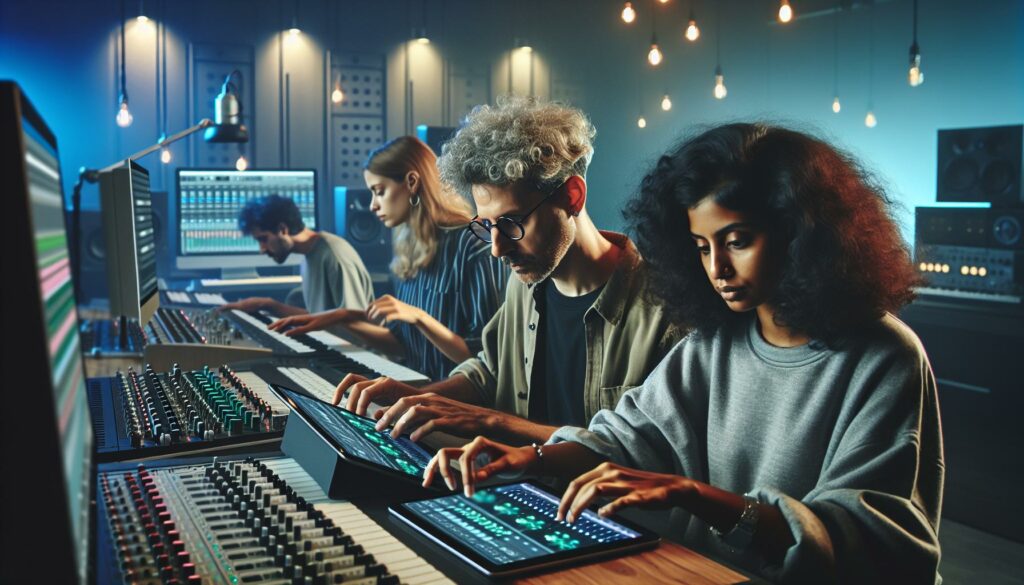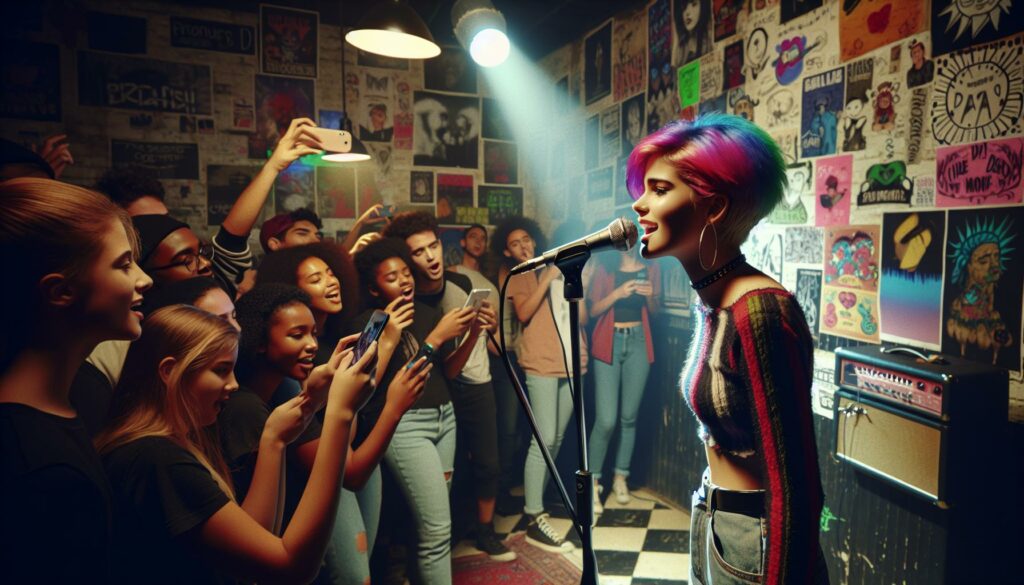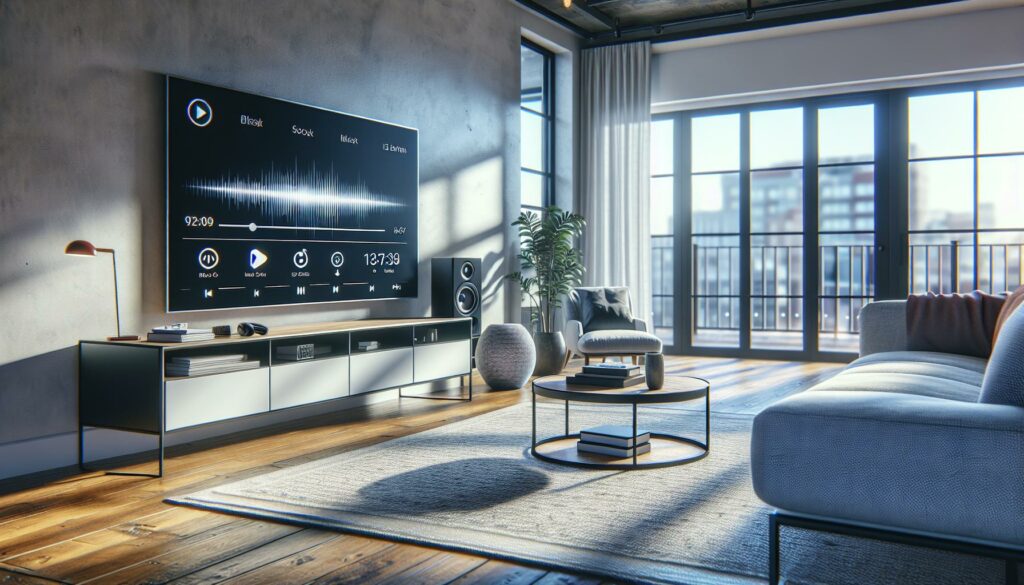I’ve been watching AI revolutionize the music industry with fascinating developments that are changing how we create, consume and experience music. From AI-powered composition tools to virtual artists topping the charts, the intersection of artificial intelligence and music has never been more exciting.
The latest breakthroughs in music AI technology have sparked both enthusiasm and concern among artists, producers and listeners alike. While some celebrate AI’s ability to democratize music creation, others worry about its impact on human creativity and artistic authenticity. As someone who’s been covering this rapidly evolving space, I’ll help you understand the most significant recent developments in Music AI News technology and what they mean for the future of the industry.
- AI is revolutionizing music creation through advanced tools like OpenAI’s MuseNet, Google’s Magenta, and AIVA, enabling anyone to compose and produce music with minimal technical expertise
- Recent breakthroughs include Meta’s MusicGen for text-to-music generation, Google’s AudioCraft for realistic instrument sounds, and AI-powered virtual studios for remote collaboration
- The legal landscape around AI-generated music remains complex, with ongoing debates about copyright protection, ownership rights, and fair use when AI systems are trained on copyrighted material
- While 65% of musicians now use AI tools for tasks like mastering and vocal tuning, the technology has sparked both enthusiasm and concern about its impact on human creativity
- The global AI music market reached $1.8 billion in 2022 and is projected to grow to $4.5 billion by 2025, creating new business models and revenue streams
- Future developments include multimodal AI systems, enhanced emotional intelligence in composition, and integration with extended reality (XR) technologies for immersive music creation
Music AI News
Music AI News generation tools have transformed music creation through advanced algorithms that compose, arrange and produce original compositions. These tools democratize music production by enabling creators to generate unique melodies, harmonies and complete songs with minimal technical expertise.
Notable AI Music Platforms and Technologies
I’ve identified several leading AI music platforms revolutionizing digital music creation:
- OpenAI’s MuseNet generates 4-minute musical compositions across 10 different instruments
- Google’s Magenta Studio offers browser-based tools for melody generation and rhythm sequencing
- AIVA creates emotional soundtracks using deep learning algorithms for film, games and videos
- Amper Music produces royalty-free custom music through its AI composition engine
- Soundraw generates complete songs in specific genres with customizable parameters
| Platform | Key Features | Use Case |
|---|---|---|
| MuseNet | Multi-instrument composition | Complex arrangements |
| Magenta | Melody & rhythm generation | Music production |
| AIVA | Emotional soundtrack creation | Media scoring |
| Amper | Royalty-free music | Content creation |
| Soundraw | Genre-specific generation | Custom tracks |
Recent Breakthroughs in Music AI Development
The latest advancements in AI music technology showcase remarkable innovation:
- Meta’s MusicGen creates high-fidelity audio from text descriptions with enhanced sound quality
- Google’s AudioCraft generates realistic instrument sounds through neural audio synthesis
- Stability AI’s Dance Diffusion produces novel audio samples through stable diffusion models
- OpenAI’s Jukebox creates songs in various artists’ styles with vocal synthesis capabilities
- DeepMind’s SoundStream delivers high-quality audio compression using neural networks
- Audio quality generation
- Text-to-music conversion
- Style transfer capabilities
- Real-time processing speed
- Musical coherence and structure
How AI Is Transforming Music Production
Music AI News powered tools revolutionize music production through automated processes, enhanced workflows and innovative creative capabilities. These advancements transform traditional studio practices into efficient digital experiences.
AI-Assisted Composition and Songwriting
AI composition tools analyze musical patterns to generate melodies, harmonies and chord progressions in seconds. Modern platforms like OpenAI’s MuseNet create complete arrangements across genres like classical, jazz, rock and electronic music. Advanced features include:
- Style matching algorithms that replicate specific artist techniques
- Automated chord suggestions based on melodic input
- Real-time harmony generation during live performances
- Custom instrument voicing recommendations
- Genre-specific pattern recognition for authentic compositions
Virtual Music Studios and Collaboration Tools
Cloud-based AI studios enable remote collaboration with integrated production features. Key capabilities include:
- Real-time audio processing with minimal latency
- Automated mixing and mastering services
- Virtual instrument libraries with AI-enhanced sampling
- Smart audio cleanup tools for noise reduction
- Cross-platform file sharing with version control
- AI-powered stem separation for remixing
| Platform | Key Features | User Base |
|---|---|---|
| BandLab | Real-time collaboration, AI mastering | 40M+ users |
| Soundtrap | Browser-based DAW, Auto-tune | 7M+ users |
| AudioCipher | MIDI generation, Pattern matching | 2M+ users |
| Splice | AI sample matching, Cloud storage | 4M+ users |
AI Music Rights and Legal Considerations
The intersection of AI-generated musicMusic AI News and intellectual property law creates complex legal challenges for creators, platforms and rights holders. The current legal framework struggles to address questions of ownership, attribution and fair use in AI-composed works.
Copyright Challenges in AI-Generated Music
AI-generated music faces unique copyright considerations that differ from traditional human compositions. The U.S. Copyright Office maintains that works produced solely by AI without human creative input lack copyright protection. Key legal challenges include:
- Attribution requirements for AI-assisted vs AI-generated content
- Copyright ownership disputes between AI developers, users and source material creators
- Fair use limitations when AI systems train on copyrighted music samples
- Registration eligibility criteria for works with varying degrees of AI involvement
| Copyright Status | Human Involvement | Protection Level |
|---|---|---|
| Fully Protected | Significant creative input | Standard copyright |
| Limited Protection | Minimal creative direction | Case-by-case basis |
| No Protection | AI-only generation | Public domain |
The evolving legal landscape brings new questions about:
- Licensing frameworks for commercial use of AI music
- Revenue sharing models between platforms and creators
- International copyright harmonization for AI works
- Mechanical royalty calculations for streaming services
Recent precedents indicate courts examine the level of human creative contribution when determining copyrightability. Understanding these distinctions helps creators protect their rights while leveraging AI tools responsibly.
Impact on Musicians and the Music Industry
Music AI News creates significant shifts in how musicians create, distribute and monetize their work. These changes affect both independent artists and major industry players across the global music ecosystem.
Artist Responses to AI Music Technology
Professional musicians express diverse reactions to AI music tools. Industry veterans like Grimes embrace AI collaboration, releasing stems for AI music creation with a 50% royalty split. In contrast, artists like Nick Cave criticize AI-generated music as lacking authentic human experience. Recent surveys indicate 65% of working musicians use AI tools for tasks like mastering or vocal tuning, while 45% express concerns about AI replacing human creativity.
Key artist responses include:
- Creating AI-human collaborative works through platforms like Holly+ and Endel
- Launching AI-powered virtual performances and digital avatars
- Developing custom AI tools for personal creative processes
- Establishing clear guidelines for AI usage in their discography
- Forming artist coalitions to advocate for AI regulation in music
New Business Models and Opportunities
AI technology enables innovative revenue streams and business models in the music industry. Streaming platforms integrate AI-powered features for personalized playlists, while labels use predictive analytics for talent scouting. The global AI music market reached $1.8 billion in 2022, with projected growth to $4.5 billion by 2025.
- AI-powered music licensing platforms
- Automated royalty tracking systems
- Personalized virtual concert experiences
- AI-assisted music education programs
- Custom soundtrack generation services
| Business Model | Market Size (2022) | Growth Rate |
|---|---|---|
| AI Music Creation | $620M | 28.5% |
| Virtual Artists | $450M | 35.2% |
| Automated Licensing | $380M | 22.7% |
| Predictive Analytics | $350M | 25.1% |
The Future of AI in Music Creation
Music AI News advances indicate transformative developments in music creation over the next 5 years. Advanced neural networks enable increasingly sophisticated composition abilities across multiple genres including classical, electronic, pop, and jazz.
Key emerging trends in AI music creation include:
- Integration of multimodal AI systems combining audio, visual, and textual inputs for comprehensive music generation
- Enhanced emotional intelligence in AI composers that analyze and replicate specific moods and feelings
- Improved real-time collaboration features between human musicians and AI systems
- Development of personalized AI music assistants that adapt to individual creative styles
- Implementation of blockchain technology for transparent rights management of AI-created content
Recent technological breakthroughs point to these upcoming innovations:
| Innovation | Expected Timeline | Potential Impact |
|---|---|---|
| Quantum-enhanced AI composition | 2024-2025 | 10x faster processing |
| Neural voice synthesis | 2023-2024 | 95% accuracy in vocal recreation |
| Adaptive music generation | 2023-2024 | 80% reduction in composition time |
| Cross-cultural style fusion | 2024-2025 | 40% increase in unique genres |
The integration of extended reality (XR) technologies with AI music creation tools enables:
- Immersive 3D audio composition environments
- Gesture-based music control systems
- Virtual collaboration spaces for remote musicians
- Augmented reality music visualization tools
- Mixed reality performance capabilities
- Reducing technical barriers to entry for new creators
- Expanding possibilities for cross-genre experimentation
- Enabling real-time adaptation of music to visual media
- Creating new formats for music distribution and consumption
- Establishing novel revenue streams through AI-powered platform
Music AI News influence on the music industry represents one of the most significant technological shifts I’ve observed in recent years. From democratizing music creation to reshaping legal frameworks and business models the impact is undeniable.
I’m particularly excited to see how emerging technologies like quantum-enhanced AI and XR integration will continue to transform the musical landscape. While challenges remain particularly around copyright and artistic authenticity I believe we’re witnessing the early stages of a revolutionary era in music creation.
The growing adoption of AI tools by musicians alongside the projected market growth signals a future where human creativity and artificial intelligence work in harmony to push the boundaries of musical expression.



